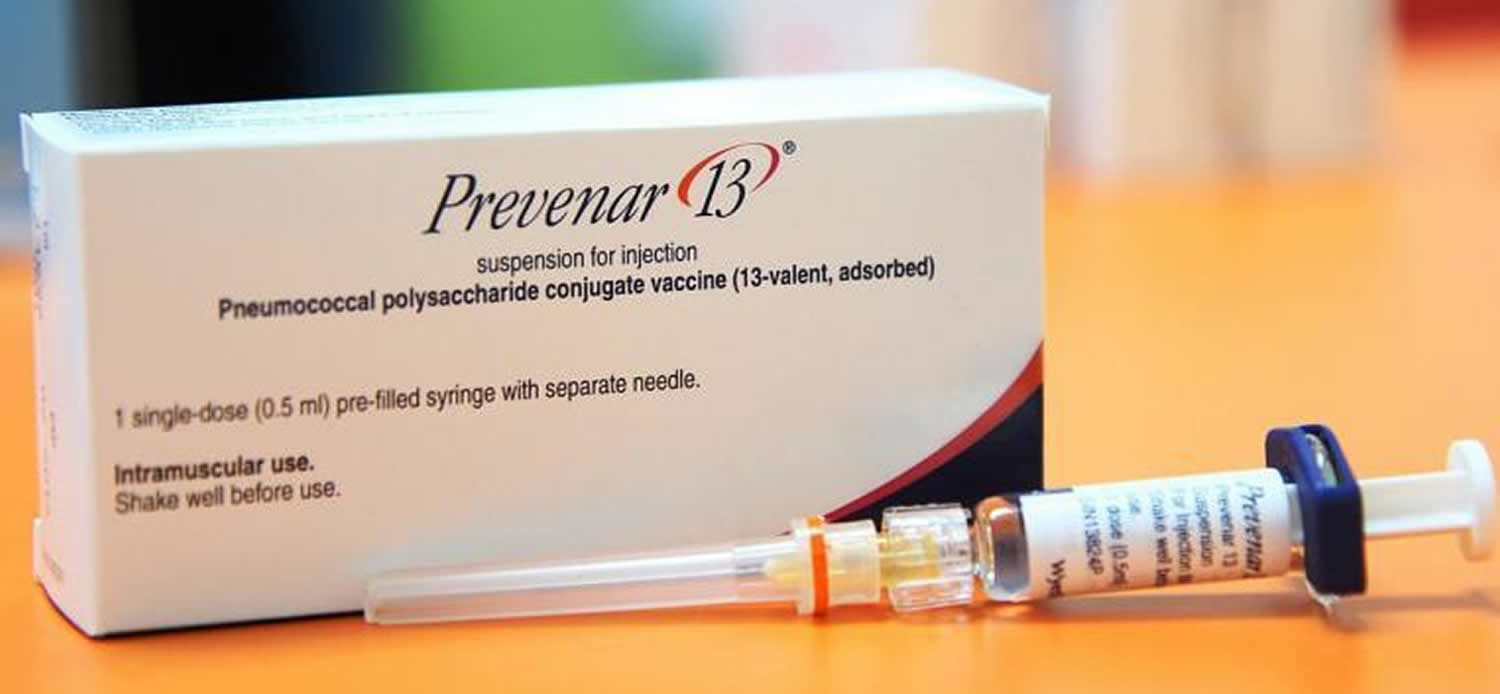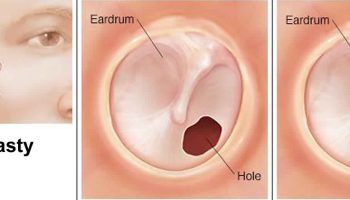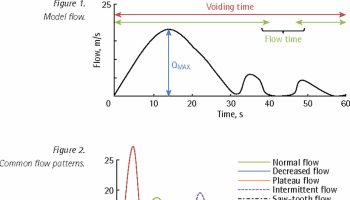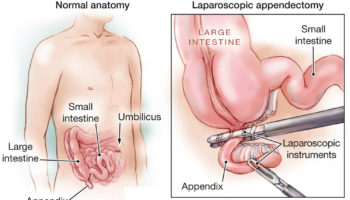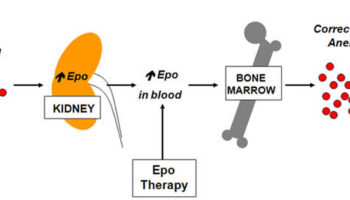What is pneumococcal vaccine
Pneumococcal vaccines are very good at preventing severe pneumococcal disease, which is any type of infection caused by Streptococcus pneumoniae bacteria, needing treatment in the hospital and death. However, pneumococcal vaccination is not guaranteed to prevent infection and symptoms in all people. Streptococcus pneumoniae or pneumococcus, is a type of bacterium that causes pneumococcal disease. Pneumococcal infections can range from ear and sinus infections to pneumonia and bloodstream infections. Each year in the United States, pneumococcal disease causes thousands of infections, such as meningitis, bloodstream infections, pneumonia, and ear infections. Children younger than 2 years old and adults 65 years or older are among those most at risk for disease, but older adults are at greatest risk of serious illness and death.
The Food and Drug Administration (FDA) licensed 2 pneumococcal vaccines for use in the United States. The two kinds of pneumococcal vaccines available in the United States that help prevent pneumococcal disease in children and adults are:
- Pneumococcal conjugate vaccine: the 13-valent pneumococcal conjugate vaccine (PCV13 [Prevnar 13])
- Pneumococcal polysaccharide vaccine: the 23-valent pneumococcal polysaccharide vaccine (PPSV23 [Pneumovax 23])
The Centers for Disease Control and Prevention (CDC) recommends pneumococcal conjugate vaccine (PCV13 [Prevnar 13]) for all children younger than 2 years old, all adults 65 years or older, and people 2 through 64 years old with certain medical conditions. CDC recommends pneumococcal polysaccharide vaccine (PPSV23 [Pneumovax 23]) for all adults 65 years or older, people 2 through 64 years old with certain medical conditions, and adults 19 through 64 years old who smoke cigarettes.
One dose of PCV13 [Prevnar 13] is recommended for adults:
- 65 years or older who have not previously received PCV13 [Prevnar 13].
- 19 years or older with certain medical conditions and who have not previously received PCV13 [Prevnar 13]. See Table 1 below for specific guidance.
One dose of PPSV23 [Pneumovax 23] is recommended for adults:
- 65 years or older, regardless of previous history of vaccination with pneumococcal vaccines.
- Once a dose of PPSV23 [Pneumovax 23] is given at age 65 years or older, no additional doses of PPSV23 should be administered.
- 19 through 64 years with certain medical conditions.
- A second PPSV23 [Pneumovax 23] dose may be indicated depending on the medical condition. See Table 1 for specific guidance.
Where can I find pneumococcal vaccines?
Your healthcare professional’s office is usually the best place to receive recommended vaccines for you or your child.
Pneumococcal conjugate vaccine is part of the routine childhood immunization schedule. Therefore, it is regularly available for children at:
- Pediatric offices
- Family practice offices
- Community health clinics
- Public health departments
If your healthcare professional does not have pneumococcal vaccines for adults, ask for a referral.
Pneumococcal vaccines may also be available for adults at:
- Pharmacies
- Workplaces
- Community health clinics
- Health departments
- Other community locations such as schools and religious centers
Federally funded health centers can also provide services if you don’t have a regular source of health care. Locate one near you here (https://www.vaccines.gov/getting/where/index.html). You can also contact your state health department here (https://www.cdc.gov/vaccines/imz-managers/awardee-imz-websites.html) to learn more about where to get pneumococcal vaccines in your community.
When receiving any vaccine, ask the provider to record the vaccine in the state or local registry, if available. This helps healthcare professionals know what vaccines you or your child has already received.
How do I pay for these pneumococcal vaccines?
There are several ways to cover the cost of pneumococcal vaccines:
Medicare
Medicare Part B covers 100% of the cost for both pneumococcal vaccines (when administered at least 12 months apart).
Private Health Insurance
Most private health insurance plans cover pneumococcal vaccines. Check with your insurance provider for details on whether there is any cost to you and for a list of in-network vaccine providers.
Vaccines for Children Program
The Vaccines for Children (VFC) Program provides vaccines to children whose parents or guardians may not be able to afford them. A child is eligible if they are younger than 19 years old and meets one of the following requirements:
- Medicaid-eligible
- Uninsured
- American Indian or Alaska Native
- Underinsured (have health insurance that does not cover vaccines or does not cover certain vaccines)
If your child is VFC-eligible, ask if your healthcare professional is a VFC provider. For help in finding a VFC provider near you, contact your state or local health department’s VFC Program Coordinator here: https://www.cdc.gov/vaccines/imz-managers/awardee-imz-websites.html
How well do these pneumococcal vaccines work?
Some pneumococcal infections are “invasive.” Invasive disease means that germs invade parts of the body that are normally free from germs. Invasive disease is usually very serious and can sometimes result in death.
Vaccines that help protect against pneumococcal disease work well, but cannot prevent all cases.
Studies 1, 2, 3show that at least 1 dose of pneumococcal conjugate vaccine protects:
- At least 8 in 10 babies from serious infections called invasive pneumococcal disease
- 75 in 100 adults 65 years or older against invasive pneumococcal disease
- 45 in 100 adults 65 years or older against pneumococcal pneumonia
Studies* show that 1 dose of pneumococcal polysaccharide vaccine protects
Between 50 to 85 in 100 healthy adults against invasive pneumococcal disease
* Studies looked at protection against infections caused by the serotypes covered by the specific vaccine used
Composition of Pneumococcal Vaccines
Pneumococcal Conjugate Vaccine
Pneumococcal conjugate vaccine (PCV13 or Prevnar13®) includes purified capsular polysaccharide of 13 serotypes of Streptococcus pneumoniae (1, 3, 4, 5, 6A, 6B, 7F, 9V, 14, 19A, 19F, 18C, and 23F) conjugated to a nontoxic variant of diphtheria toxin known as CRM197. A 0.5-milliliter (mL) PCV13 dose contains approximately 2.2 micrograms (µg) of polysaccharide from each of 12 serotypes and approximately 4.4 µg of polysaccharide from serotype 6B; the total concentration of CRM197 is approximately 34 μg. The vaccine contains 0.02% polysorbate 80, 0.125 milligrams of aluminum as aluminum phosphate adjuvant, and 5 mL of succinate buffer. The vaccine does not contain thimerosal preservative.
Pneumococcal Polysaccharide Vaccine
Pneumococcal polysaccharide vaccine (PPSV23 or Pneumovax23®) includes purified preparations of pneumococcal capsular polysaccharide. PPSV23 contains polysaccharide antigen from 23 types of pneumococcal bacteria. It contains 25 µg of each antigen per dose and contains 0.25% phenol as a preservative.
Pneumococcal vaccine contraindications and precautions
You should NOT receive PCV13 [Prevnar 13]:
- If you ever had a severe allergic reaction (e.g., anaphylaxis) after a previous dose of PCV7 or PCV13 or to any vaccine containing diphtheria toxoid
- If you have a severe allergy to any component of this vaccine
- Anyone who has had a life-threatening allergic reaction to any of the following should not get PCV13:
- A dose of this vaccine
- An earlier pneumococcal conjugate vaccine called PCV7 (or Prevnar®)
- Any vaccine containing diphtheria toxoid (for example, DTaP)
- Anyone with a severe allergy to any component of PCV13 should not get the vaccine. Your or your child’s healthcare professional can tell you about the vaccine’s components.
You should NOT receive PPSV23 [Pneumovax 23]:
- Children younger than 2 years old should not get this vaccine.
- If you ever had a severe allergic reaction (e.g., anaphylaxis) after a previous dose
- If you have a severe allergy to any component of this vaccine
- You or your child have had a life-threatening allergic reaction or have a severe allergy.
- Anyone who has had a life-threatening allergic reaction to PPSV23 should not get another dose.
- Anyone who has a severe allergy to any component of PPSV23 should not get it. Your or your child’s healthcare professional can tell you about the vaccine’s components.
You or your child are not feeling well.
- People who have a mild illness, such as a cold, can probably get the vaccine. People who have a more serious illness should probably wait until they recover. Your or your child’s healthcare professional can advise you.
You are pregnant.
- There is no evidence that PPSV23 is harmful either to a pregnant woman or to her baby. However, as a precaution, women who need the vaccine should get it before becoming pregnant, if possible.
You may have pneumococcal vaccines, if your healthcare provider and parent or you deem the benefits of vaccination to outweigh the risks.
- People who have a mild illness, such as a cold, can probably get the vaccine. People who have a more serious illness should probably wait until they recover. Your or your child’s healthcare professional can advise you.
Pneumococcal vaccine schedule
The Advisory Committee on Immunization Practices 4 currently recommends that a dose of the 13-valent pneumococcal conjugate vaccine (PCV13 [Prevnar 13]) be followed by a dose of the 23-valent pneumococcal polysaccharide vaccine (PPSV23 [Pneumovax 23]) in all adults aged ≥65 years who have not previously received pneumococcal vaccine and in persons aged ≥2 years who are at high risk for pneumococcal disease because of underlying medical conditions (see Table 1). The recommended intervals between PCV13 [Prevnar 13] and PPSV23 [Pneumovax 23] given in series differ by age and risk group and the order in which the two vaccines are given 5, 6.
Recommended intervals between PCV13 [Prevnar 13] and PPSV23 [Pneumovax 23] for persons aged ≥2 years with medical indications to receive both vaccines remain unchanged. PPSV23 [Pneumovax 23] is recommended to be given ≥8 weeks after PCV13 [Prevnar 13] for children and adults aged ≥19 years with certain underlying medical conditions (including adults aged ≥65 years with immunocompromising conditions, functional or anatomic asplenia, CSF leaks, or cochlear implants). Studies among HIV-positive adults evaluating the immune response to PPSV23 [Pneumovax 23] administered 4 or 8 weeks after PCV7 showed statistically significant increases in antibody levels compared with response to PPSV23 [Pneumovax 23] alone 7, 8. The currently recommended 8-week interval minimizes the risk window for invasive pneumococcal disease caused by serotypes unique to PPSV23 [Pneumovax 23] in these highly vulnerable groups.
For immunocompetent adults aged ≥65 years who have not previously received pneumococcal vaccine, the Advisory Committee on Immunization Practices makes the following recommendation for intervals between PCV13 followed by PPSV23: A dose of PPSV23 [Pneumovax 23] should be given ≥1 year following a dose of PCV13 [Prevnar 13]. The two vaccines should not be co-administered. If a dose of PPSV23 [Pneumovax 23] is inadvertently given earlier than the recommended interval, the dose need not be repeated.
Table 1. Summary of pneumococcal vaccine recommended intervals
Risk group/Underlying medical condition | Intervals for PCV13–PPSV23 | Intervals for PPSV23–PCV13 | ||||||
24–71 months | 6–18 years | 19–64 years | ≥65 years | 24–71 months | 6–18 years | 19–64 years | ≥65 years | |
No underlying chronic conditions | NA | NA | NA | ≥1 year | NA | NA | NA | ≥1 year |
Immunocompetent persons
| ≥8 weeks | NA | NA | ≥1 year | ≥8 weeks | NA | NA | ≥1 year |
Immunocompetent persons
| ≥8 weeks | ≥8 weeks | ≥8 weeks | ≥8 weeks | ≥8 weeks | ≥8 weeks | ≥1 year | ≥1 year |
Persons with functional or anatomic asplenia
| ≥8 weeks | ≥8 weeks | ≥8 weeks | ≥8 weeks | ≥8 weeks | ≥8 weeks | ≥1 year | ≥1 year |
Immunocompromised persons
| ≥8 weeks | ≥8 weeks | ≥8 weeks | ≥8 weeks | ≥8 weeks | ≥8 weeks | ≥1 year | ≥1 year |
Abbreviation: NA = not applicable, sequential use of PCV13 [Prevnar 13] and PPSV23 [Pneumovax 23] is not recommended for these age and risk groups. * Underlying medical conditions that are not included in the recommendations for children aged <6 years. | ||||||||
Figure 1. Recommended intervals for sequential use of PCV13 [Prevnar 13] and PPSV23 [Pneumovax 23] for immunocompetent adults aged ≥65 years
Footnotes: The above figure outlines the Advisory Committee on Immunization Practices recommended intervals for sequential use of 13-valent pneumococcal conjugate vaccine (PCV13 [Prevnar 13]) and 23-valent pneumococcal polysaccharide vaccine (PPSV23 [Pneumovax 23]) for immunocompetent adults aged ≥65 years in the United States.
For adults aged ≥65 years with immunocompromising conditions, functional or anatomic asplenia, cerebrospinal fluid leaks, or cochlear implants, the recommended interval between PCV13 [Prevnar 13] followed by PPSV23 [Pneumovax 23] is ≥8 weeks. For those for who previously received PPSV23 [Pneumovax 23] when aged <65 years and for whom an additional dose of PPSV23 is indicated when aged ≥65 years, this subsequent PPSV23 [Pneumovax 23] dose should be given ≥1 year after PCV13 [Prevnar 13] and ≥5 years after the most recent dose of PPSV23 [Pneumovax 23].
[Source 9]Pneumococcal vaccine guidelines
The Advisory Committee on Immunization Practices currently recommends that both 13-valent pneumococcal conjugate vaccine (PCV13 [Prevnar 13]) and 23-valent pneumococcal polysaccharide vaccine (PPSV23 [Pneumovax 23]) be given in series to adults aged ≥65 years. A dose of PCV13 [Prevnar 13] should be given first followed by a dose of PPSV23 [Pneumovax 23] at least 1 year later to immunocompetent adults aged ≥65 years. The two vaccines should not be co-administered. If a dose of PPSV23 [Pneumovax 23] is inadvertently given earlier than the recommended interval, the dose need not be repeated. The Advisory Committee on Immunization Practices also recommends that adults aged ≥65 years who already received a dose of PPSV23 [Pneumovax 23], should also receive a dose of PCV13 [Prevnar 13] ≥1 year after the dose of PPSV23 [Pneumovax 23]. Among persons aged ≥2 years with medical indications to receive both PCV13 [Prevnar 13] and PPSV23 [Pneumovax 23] in a series, including adults aged ≥65 years with immunocompromising conditions, functional or anatomic asplenia, cochlear implants, or cerebrospinal fluid leaks, a dose of PPSV23 [Pneumovax 23] should be given ≥8 weeks after a dose of PCV13 [Prevnar 13].
CDC recommends pneumococcal conjugate – the 13-valent pneumococcal conjugate vaccine (PCV13 [Prevnar 13]) vaccination for:
- All babies and children younger than 2 years old
- All adults 65 years or older
- People 2 through 64 years old with certain medical conditions
CDC recommends pneumococcal polysaccharide – the 23-valent pneumococcal polysaccharide vaccine (PPSV23 [Pneumovax 23]) vaccination for:
- All adults 65 years or older
- People 2 through 64 years old with certain medical conditions
- Adults 19 through 64 years old who smoke cigarettes
Pneumococcal vaccine by age
Children Younger than 2 Years Old
CDC recommends routine administration of pneumococcal conjugate vaccine (PCV13 or Prevnar13®) for all children younger than 2 years of age:
- Give PCV13 [Prevnar 13] to infants as a series of 4 doses, one dose at each of these ages:
- 2 months,
- 4 months,
- 6 months, and
- 12 through 15 months.
- Children who miss their shots or start the series later should still get the vaccine. The number of doses recommended and the intervals between doses will depend on the child’s age when vaccination begins (see pneumococcal vaccine catch-up guidance below).
Children 2 through 4 Years Old without Certain Medical Conditions
CDC recommends PCV13 [Prevnar 13]vaccination for children 2 through 4 years old who are unvaccinated or received an incomplete PCV13 series.
- Have 1 dose of PCV13 [Prevnar 13].
Children 2 through 5 Years Old with Certain Medical Conditions
CDC recommends pneumococcal vaccination for children 2 through 5 years old who have certain medical conditions.
For a child with any of these conditions:
- Chronic heart disease
- Chronic lung disease
- Diabetes mellitus
- Cerebrospinal fluid leaks
- Cochlear implant(s)
CDC recommends you:
- Have 2 doses of PCV13 [Prevnar 13] if they are unvaccinated or received an incomplete PCV13 series with <3 doses. Have the second dose at least 8 weeks after the first.
- Have 1 dose of PCV13 [Prevnar 13] if they received 3 doses of PCV13 but none were given after 12 months of age.
- Have 1 dose of PPSV23 [Pneumovax 23] at least 8 weeks after the PCV13 series is complete.
For a child with any of these conditions:
- Sickle cell disease or other hemoglobinopathies
- Congenital or acquired asplenia, or splenic dysfunction
- HIV infection
- Chronic renal failure or nephrotic syndrome
- Diseases associated with treatment with immunosuppressive drugs or radiation therapy, including malignant neoplasm, leukemia, lymphomas, and
- Hodgkin’s disease, or solid organ transplantation
- Congenital immunodeficiency
CDC recommends you:
- Have 2 doses of PCV13 [Prevnar 13] if they are unvaccinated or received an incomplete PCV13 series with <3 doses. Have the second dose at least 8 weeks after the first.
- Have 1 dose of PCV13 if they received 3 doses of PCV13 but none were given after 12 months of age.
- Have 2 doses of PPSV23 [Pneumovax 23] after the PCV13 series is complete. Have the first dose at least 8 weeks after any prior PCV13 dose, then give the second dose of PPSV23 at least 5 years after the first.
Children 6 through 18 Years Old with Certain Medical Conditions
CDC recommends pneumococcal vaccination for children 6 through 18 years old who have certain medical conditions.
For a child with any of these conditions:
- Cerebrospinal fluid leaks
- Cochlear implant(s)
CDC recommends you:
- Have 1 dose of PCV13 [Prevnar 13] if they have not received any doses of PCV13. Administer PCV13 before giving any recommended doses of PPSV23.
- Have 1 dose of PPSV23 [Pneumovax 23] (if not already given earlier in childhood) at least 8 weeks after PCV13.
For a child with any of these conditions:
- Sickle cell disease or other hemoglobinopathies
- Congenital or acquired asplenia, or splenic dysfunction
- HIV infection
- Chronic renal failure or nephrotic syndrome
- Diseases associated with treatment with immunosuppressive drugs or radiation therapy, including malignant neoplasm, leukemia, lymphomas, and
- Hodgkin’s disease, or solid organ transplantation
- Congenital immunodeficiency
CDC recommends you:
- Have 1 dose of PCV13 [Prevnar 13] if they have not received any doses of PCV13. Administer PCV13 before giving any recommended doses of PPSV23.
- Ensure the child receives 2 doses of PPSV23 [Pneumovax 23]. The first dose of PPSV23 should be given at least 8 weeks after any prior PCV13 dose, then the second dose of PPSV23 should be given at least 5 years after the first.
For a child with any of these conditions:
- Chronic heart disease
- Chronic lung disease
- Diabetes mellitus
- Alcoholism
- Chronic liver disease
- Cigarette smoking
CDC recommends you:
- Have 1 dose of PPSV23 [Pneumovax 23] (if not already given earlier in childhood).
Adults 19 through 64 Years
CDC recommends pneumococcal vaccination for adults 19 through 64 years old who have certain medical conditions or who smoke.
For anyone with any of the conditions listed below who has not previously received the recommended pneumococcal vaccines:
- Cerebrospinal fluid leaks
- Cochlear implant(s)
CDC recommends you:
- Have 1 dose of PCV13 [Prevnar 13] and 1 dose of PPSV23 [Pneumovax 23]. Administer PCV13 first, then give the PPSV23 dose at least 8 weeks later.
For anyone with any of the conditions listed below who has not previously received the recommended pneumococcal vaccines:
- Sickle cell disease or other hemoglobinopathies
- Congenital or acquired asplenia
- Congenital or acquired immunodeficiency
- HIV infection
- Chronic renal failure or nephrotic syndrome
- Leukemia or lymphoma
- Hodgkin’s disease
- Generalized malignancy
- Iatrogenic immunosuppression (diseases requiring treatment with immunosuppressive drugs, including long-term systemic corticosteroids and radiation therapy)
- Solid organ transplantation
- Multiple myeloma
CDC recommends you:
- Have 1 dose of PCV13 [Prevnar 13] and 2 doses of PPSV23 [Pneumovax 23]. Administer PCV13 first, then give the first PPSV23 dose at least 8 weeks later. Have the second dose of PPSV23 at least 5 years after the first.
For anyone who smokes and has not previously received the recommended pneumococcal vaccine
CDC recommends you:
- Have 1 dose of PPSV23 [Pneumovax 23].
For anyone with any of the conditions listed below who has not previously received the recommended pneumococcal vaccine:
- Alcoholism
- Chronic heart disease
- Chronic liver disease
- Chronic lung disease
- Diabetes mellitus
CDC recommends you:
- Have 1 dose of PPSV23 [Pneumovax 23].
Adults 65 Years or Older
CDC recommends pneumococcal vaccination for all adults 65 years or older. Have a dose of PCV13 [Prevnar 13] to adults 65 years or older who have not previously received a dose. Then administer a dose of PPSV23 [Pneumovax 23] at least 1 year later.
- Have 1 dose of PCV13 [Prevnar 13] to all adults 65 years or older who have not previously received a dose.
- Have 1 dose of PPSV23 [Pneumovax 23] to all adults 65 years or older at least 1 year after any prior PCV13 dose and at least 5 years after any prior PPSV23 dose.
- Adults who received one or two doses of PPSV23 before age 65 should receive one final dose of the vaccine at age 65 or older.
Figure 2. Pneumococcal vaccine timing for adults 65 years or older
Pneumococcal vaccine Catch-Up Guidance
Pneumococcal vaccine Catch-Up Guidance for Healthy Children 4 Months to 4 Years of Age
Figure 3. Pneumococcal vaccine Catch-Up Guidance for Healthy Children 4 Months to 4 Years of Age
Pneumococcal Vaccine Effectiveness
Pneumococcal Conjugate Vaccine
FDA licensed the first pneumococcal conjugate vaccine (PCV7) in 2000. A large clinical trial showed PCV7 reduced invasive disease caused by vaccine serotypes by 97%. Compared to unvaccinated children, children who received PCV7 10:
- Had 20% fewer episodes of chest X-ray confirmed pneumonia
- Had 7% fewer episodes of acute otitis media
- Underwent 20% fewer tympanostomy tube placements
PCV7 also reduced nasopharyngeal carriage, among children, of pneumococcal serotypes in the vaccine.
FDA licensed PCV13 [Prevnar 13] in 2010 based on studies comparing the serologic response of children who received PCV13 to those who received PCV7. These studies showed PCV13 induced antibody levels comparable to those induced by PCV7 and shown to be protective against invasive disease.
In another study, children aged 7 through 71 months received up to 3 PCV13 doses according to age-appropriate immunization schedules. None of the children had previously received pneumococcal conjugate vaccine. The antibody responses were comparable to those achieved after the 3-dose infant PCV13 series in the U.S. immunogenicity trial with the exception of serotype 1. The IgG geometric mean concentration was lower for serotype 1 among children aged 24 through 71 months.
Researchers conducted a randomized placebo-controlled trial (CAPiTA trial) in the Netherlands among approximately 85,000 adults 65 years or older during 2008–2013. This trial evaluated the clinical benefit of PCV13 in the prevention of pneumococcal pneumonia. The results of the CAPiTA trial demonstrated 10:
- 45.6% efficacy of PCV13 against vaccine-type pneumococcal pneumonia
- 45.0% efficacy against vaccine-type non-bacteremic pneumococcal pneumonia
- 75.0% efficacy of PCV13 against vaccine-type invasive pneumococcal disease (IPD)
Substantial evidence demonstrates routine infant PCV7 and PCV13 vaccination reduced carriage and transmission of vaccine serotypes. This resulted in lower invasive pneumococcal disease incidence among unvaccinated persons of all ages, including infants too young to receive the vaccine.
Pneumococcal Polysaccharide Vaccine
More than 80% of healthy adults who receive PPSV23 develop antibodies against the serotypes contained in the vaccine 10. This immune response usually occurs within 2 to 3 weeks after vaccination. Older adults and persons with some chronic illnesses or immunodeficiency may not respond as well Elevated antibody levels persist for at least 5 years in healthy adults but decline more quickly in persons with certain underlying illnesses. Children younger than 2 years of age generally have a poor antibody response to PPSV23.
PPSV23 vaccine efficacy studies have resulted in various estimates of clinical effectiveness. Overall, the vaccine is 60% to 70% effective in preventing invasive disease caused by serotypes in the vaccine. PPSV23 shows reduced effectiveness among immunocompromised persons; however, CDC recommends PPSV23 for these groups because of their increased risk of invasive pneumococcal disease. There is no consensus regarding the ability of PPSV23 to prevent non-bacteremic pneumococcal pneumonia.
Studies comparing patterns of asymptomatic pneumococcal carriage before and after PPSV23 vaccination have not shown decreases in carrier rates among those vaccinated.
Pneumococcal vaccine side effects
Most people who get a pneumococcal vaccine do not have any serious problems with it. With any medicine, including vaccines, there is a chance of side effects. These are usually mild and go away on their own within a few days, but serious reactions are possible.
Mild Problems
Pneumococcal Conjugate Vaccine PCV13 [Prevnar 13]
Mild problems following pneumococcal conjugate vaccination can include:
- Reactions where the shot was given
- Redness
- Swelling
- Pain or tenderness
- Fever
- Loss of appetite
- Fussiness (irritability)
- Feeling tired
- Headache
- Chills
Young children who get pneumococcal conjugate vaccine at the same time as inactivated flu vaccine may be at increased risk for seizures caused by fever. Ask your doctor for more information.
Pneumococcal Polysaccharide Vaccine PPSV23 [Pneumovax 23]
Mild problems following pneumococcal polysaccharide vaccination can include:
- Reactions where the shot was given
- Redness
- Pain
- Fever
- Muscle aches
If these problems occur, they usually go away within about two days.
Problems that Could Happen After Getting Any Injected Vaccine
People sometimes faint after a medical procedure, including vaccination. Sitting or lying down for about 15 minutes can help prevent fainting and injuries caused by a fall. Tell your healthcare professional if you or your child:
- Feels dizzy
- Has vision changes
- Has ringing in the ears
Some people get severe pain in the shoulder and have difficulty moving the arm where the doctor gave the shot. This happens very rarely.
Any medicine can cause a severe allergic reaction. Such reactions from a vaccine are very rare, estimated at about 1 in a million doses. These types of reactions would happen within a few minutes to a few hours after the vaccination.
As with any medicine, there is a very remote chance of a vaccine causing a serious injury or death.
References- Bonten MJ, Huijts SM, Bolkenbaas M, et al. Polysaccharide conjugate vaccine against pneumococcal pneumonia in adults. N Engl J Med. 2015;372(12):1114–25. https://www.nejm.org/doi/10.1056/NEJMoa1408544
- Moore MR, Link-Gelles R, Schaffner W, et al. Effectiveness of 13-valent pneumococcal conjugate vaccine for prevention of invasive pneumococcal disease in children in the USA: A matched case-control study. Lancet Respir Med. 2016;4(5):399–406. https://www.thelancet.com/journals/lanres/article/PIIS2213-2600(16)00052-7/fulltext
- Pilishvili T, Bennett NM. Pneumococcal disease prevention among adults: Strategies for the use of pneumococcal vaccines. Vaccine. 2015;33(4):D60–5. https://www.ncbi.nlm.nih.gov/pubmed/26116257
- Intervals Between PCV13 and PPSV23 Vaccines: Recommendations of the Advisory Committee on Immunization Practices (ACIP). https://www.cdc.gov/mmwr/preview/mmwrhtml/mm6434a4.htm
- Use of 13-Valent Pneumococcal Conjugate Vaccine and 23-Valent Pneumococcal Polysaccharide Vaccine Among Adults Aged ≥65 Years: Recommendations of the Advisory Committee on Immunization Practices (ACIP) https://www.cdc.gov/mmwr/preview/mmwrhtml/mm6337a4.htm
- Use of 13-Valent Pneumococcal Conjugate Vaccine and 23-Valent Pneumococcal Polysaccharide Vaccine Among Children Aged 6–18 Years with Immunocompromising Conditions: Recommendations of the Advisory Committee on Immunization Practices (ACIP) https://www.cdc.gov/mmwr/preview/mmwrhtml/mm6225a3.htm
- Feikin DR, Elie CM, Goetz MB, et al. Randomized trial of the quantitative and functional antibody responses to a 7-valent pneumococcal conjugate vaccine and/or 23-valent polysaccharide vaccine among HIV-infected adults. Vaccine 2001;20:545–53.
- Lesprit P, Pédrono G, Molina JM, et al. Immunological efficacy of a prime-boost pneumococcal vaccination in HIV-infected adults. AIDS 2007;21:2425–34.
- Intervals Between PCV13 and PPSV23 Vaccines: Recommendations of the Advisory Committee on Immunization Practices (ACIP) https://www.cdc.gov/mmwr/preview/mmwrhtml/mm6434a4.htm
- About Pneumococcal Vaccines. https://www.cdc.gov/vaccines/vpd/pneumo/hcp/about-vaccine.html
